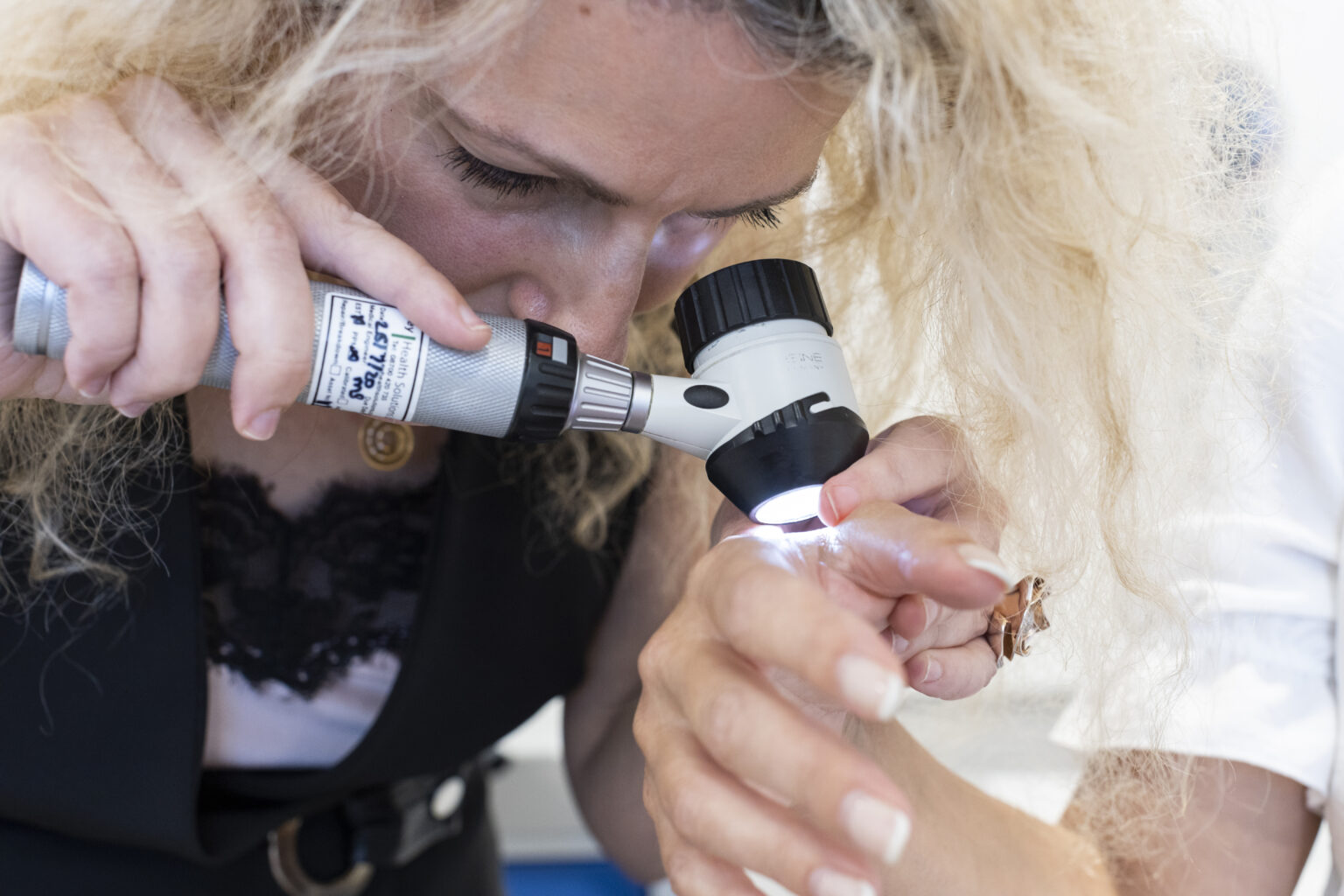Contact number: 020 7806 4060
What is a Private Skin Biopsy?
A skin biopsy is a critical tool in dermatology, allowing our specialists to examine the tissue closely under a microscope to diagnose the cause of an abnormal area on the skin. There are several types of skin biopsies – shave biopsy, punch biopsy, and excisional biopsy – each chosen based on the suspected condition. The procedure is usually quick, performed under local anaesthetic, and is instrumental in determining the right course of treatment for you.
The cost of a skin biopsy varies depending on what type of biopsy and testing your consultant believes you need. You can either self-refer to one of our dermatologists or your GP may suggest you need a skin biopsy and refer you to us.
Consultants who perform Skin Biopsies
How Much Does A Private Skin Biopsy Cost?
£660
Skin Biopsy costs £660 at St John & St Elizabeth Hospital.
*The price shown is an estimated guide price for related costs associated with your treatment, from admission to discharge. This price will vary depending on your surgical needs. This guide price does not include the cost of consultation, diagnostics or the surgeon fee.
How to pay for your treatment
If you’re… paying for yourself
Did you know you don’t need private medical insurance to come to St John & St Elizabeth Hospital? As a self-pay patient, you can access safe, outstanding quality health care at times to suit you.
For scans and tests, as well as to see most consultants, you’ll still need to be referred by a medical professional like your GP, but as a self-pay patient, the process is more straightforward. You won’t need authorisation from an insurance provider, and you’ll have greater choice of consultant and appointment times.
If you’re… insured
St John & St Elizabeth Hospital is approved by all major medical insurance companies. If you have a personal private health insurance policy, or your company provide it for you, you can use it to pay for your care from your initial consultation through to treatment, surgery and aftercare such as physiotherapy. Not all private health insurance plans cover the same things. It’s very important to check exactly what you are covered for with your insurance provider.
Frequently Asked Questions about Skin Biopsies
St John & St Elizabeth Hospital is situated in St John’s Wood (NW8), a well-connected and vibrant area of North West London, known for landmarks such as Regent’s Park and Abbey Road Studios. We are easily accessible from neighbouring areas, including Hampstead (NW3) and Kilburn (NW6):
- By Tube: St John’s Wood station (Jubilee Line) is just a 5-minute walk from the hospital. For patients travelling from Hampstead (NW3), Finchley Road station (Jubilee Line) offers a convenient route, while Kilburn (NW6) is similarly well served by the same line.
- By Bus:
Wellington Road: Routes 13, 46, 82, and 113 stop near St John’s Wood Underground Station, just a short walk from the hospital.
Circus Road: Routes 46 and 187 stop close to the hospital’s Circus Road entrance.
Abbey Road: Routes 139 and 189 stop near the junction where Grove End Road becomes Abbey Road, providing easy access.
- By Car: If you’re travelling from NW3 or NW6, use major roads like Finchley Road or Kilburn High Road for a direct approach.
Our hospital’s location in St John’s Wood ensures easy access for patients across London, particularly from the NW8, NW3, and NW6 postcodes
Your journey starts with a consultation where your medical history, symptoms, and reasons for the biopsy are discussed. It’s important to inform your doctor about any medications or supplements you take, especially those affecting blood clotting like aspirin or ibuprofen. You may be advised to avoid applying lotions or creams on the biopsy day, and usually, there are no restrictions on eating or drinking. Wearing comfortable clothing and arranging for support on the day is recommended.
When you arrive, our team will confirm your details, review consent, and prepare the biopsy site. A local anaesthetic is applied to numb the area, so you should not feel pain during the procedure, though a brief pinch or sting may occur. The biopsy itself can be done using different methods—shave biopsy removes the top skin layers, punch biopsy removes a small core including deeper layers, and excisional biopsy removes a larger area including surrounding normal skin. The procedure usually takes just a few minutes.
After the sample is taken, the site will be cleaned and dressed. Stitches may be needed, particularly after an excisional biopsy. You will receive clear aftercare instructions to support proper healing and minimise risks.
Follow your doctor’s wound care advice carefully, which may include keeping the area clean and dry and applying prescribed ointments or dressings. Watch for signs of infection such as redness, swelling, or pus, and contact us immediately if these occur. Over-the-counter pain relief can help with discomfort but check with your doctor before taking any medication.
You will have a follow-up appointment to discuss your biopsy results, which usually take a few days to a couple of weeks depending on the analysis. Your dermatologist will explain what the results mean for your health and recommend any necessary treatments or further investigations.
You’ll likely have a follow-up appointment to discuss the biopsy results and next steps. Results typically take a few days to a couple of weeks, depending on the complexity of the analysis.
Your dermatologist will explain the results, what they mean for your health, and any recommended treatments or further investigations.
- Avoid strenuous activities or anything that might stretch or stress the biopsy site until it has fully healed.
- Keep the follow-up appointment even if the biopsy site has healed and you feel fine. Discussing the results is crucial.

